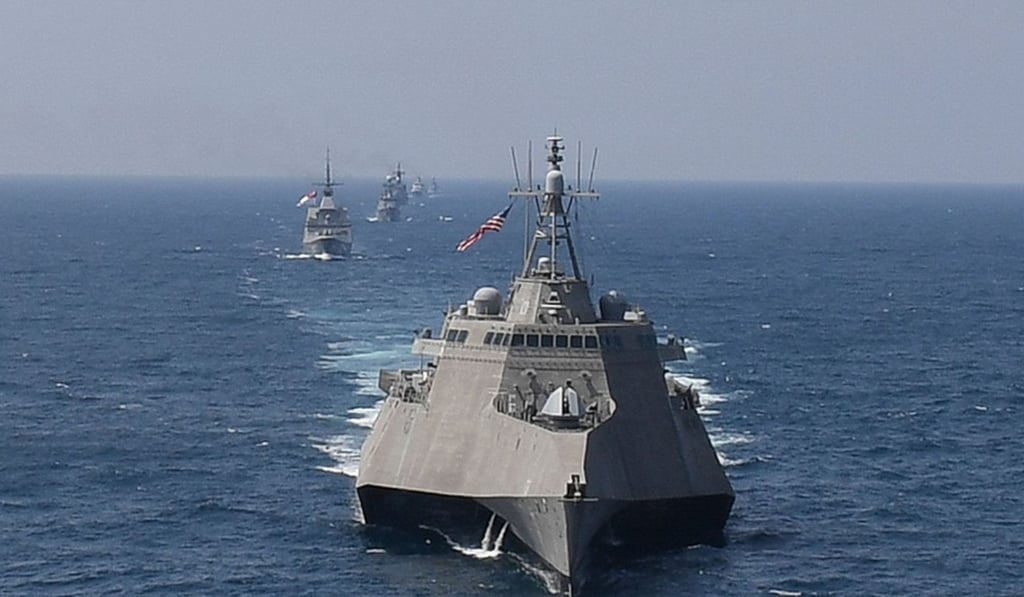Mahathir to update Malaysia’s foreign policy, including on South China Sea and international Muslim cooperation
- The premier made reference to “powerful countries” imposing their will on smaller nations, saying multilaterism was under threat
- He has also proposed the non-militarisation of the disputed waterway, and will actively promote the vision within Asean

“We are living in a world where changes take place at a rapid pace. These changes bring both challenges and opportunities. It is, therefore, only logical that Malaysia does not stick to the traditional methods of engagement and instead proactively seek to explore new approaches,” Mahathir said in a speech launching the new approach.
Themed ‘Change in Continuity’, the framework will see Malaysia maintain friendly relations with all countries and seek peaceful resolution of disputes based on international law, but the country also reserved the right to “express its opinion and if necessary, its protestations, against injustices, oppressions and other crimes against humanity that are committed by any nations”.
“Essentially, the South China Sea should be a sea of cooperation, connectivity and community-building and not confrontation or conflict. This is in line with the spirit of Zone of Peace, Freedom and Neutrality (ZOPFAN). Malaysia will actively promote this vision in Asean,” the framework said.

The ZOPFAN agreement to “keep Southeast Asia free from any form or manner of interference by outside powers” was signed by Indonesia, Malaysia, the Philippines, Thailand and Singapore in 1971.